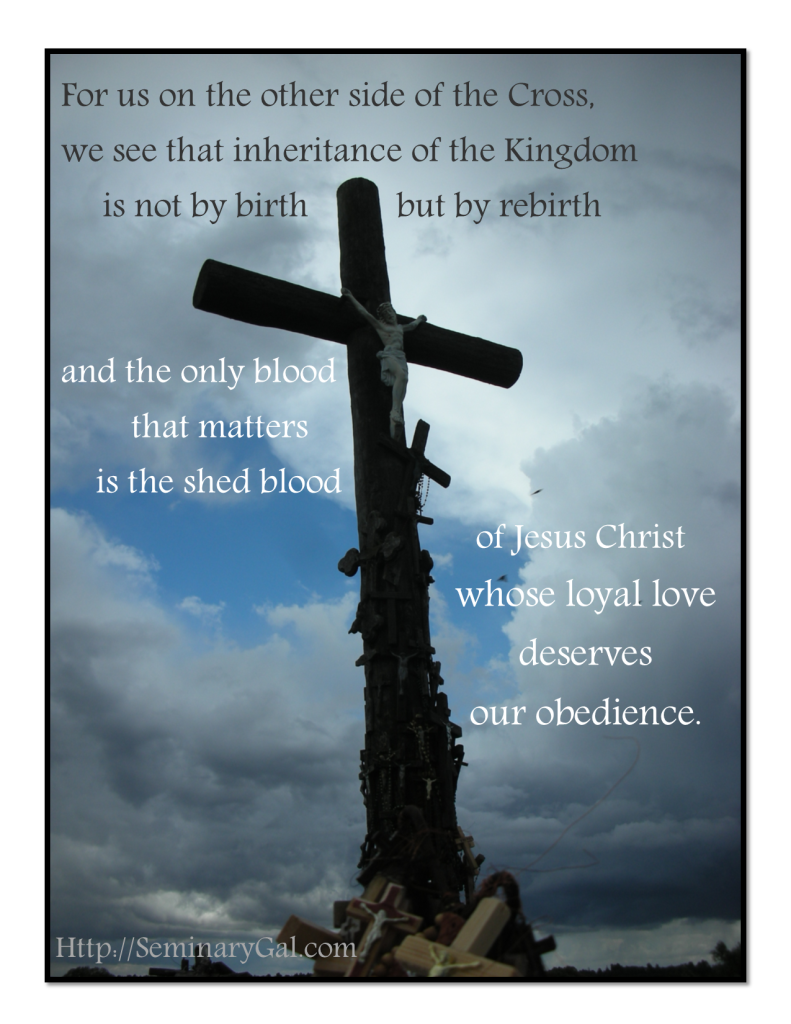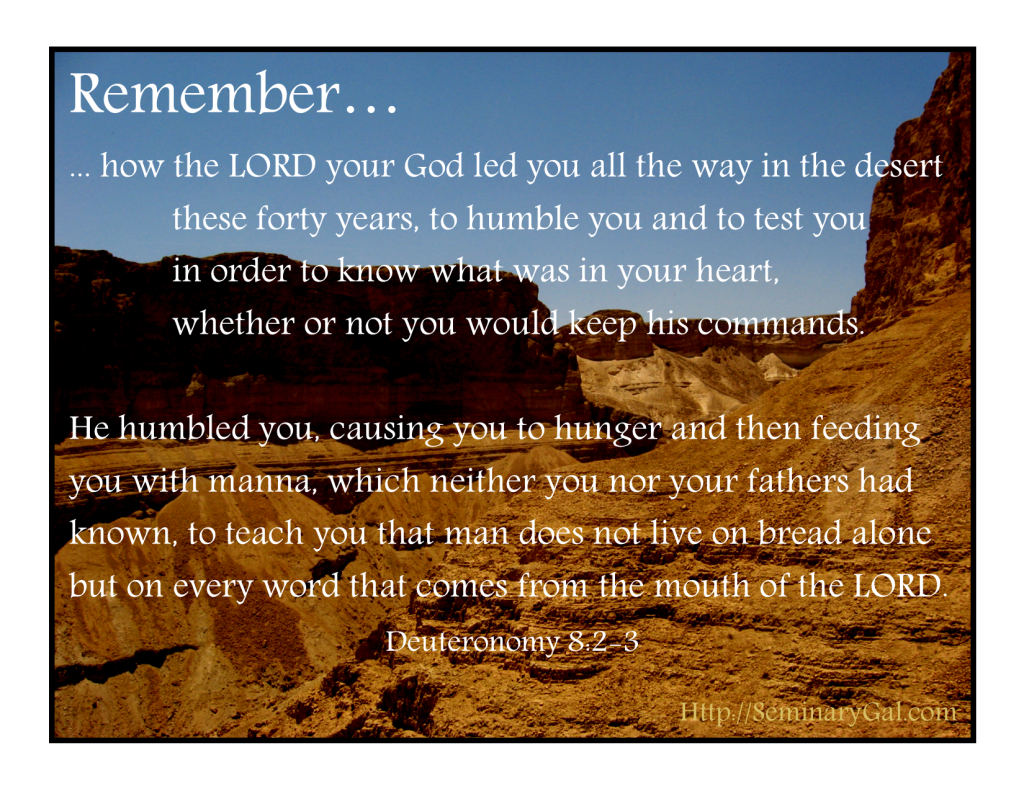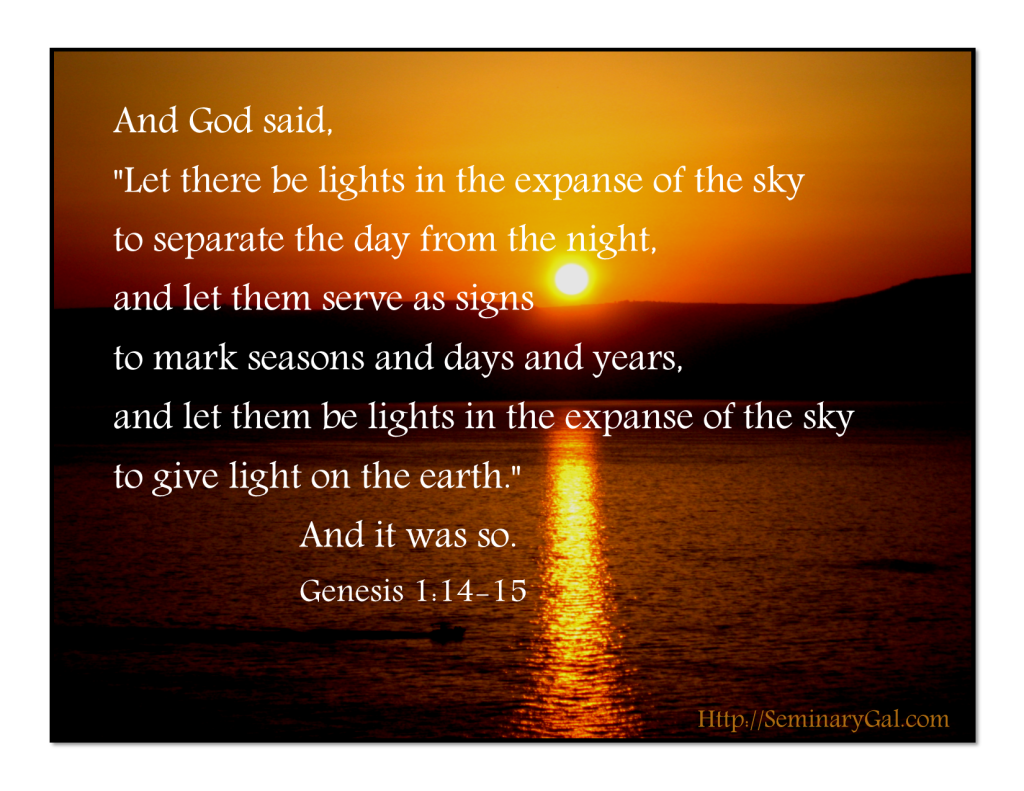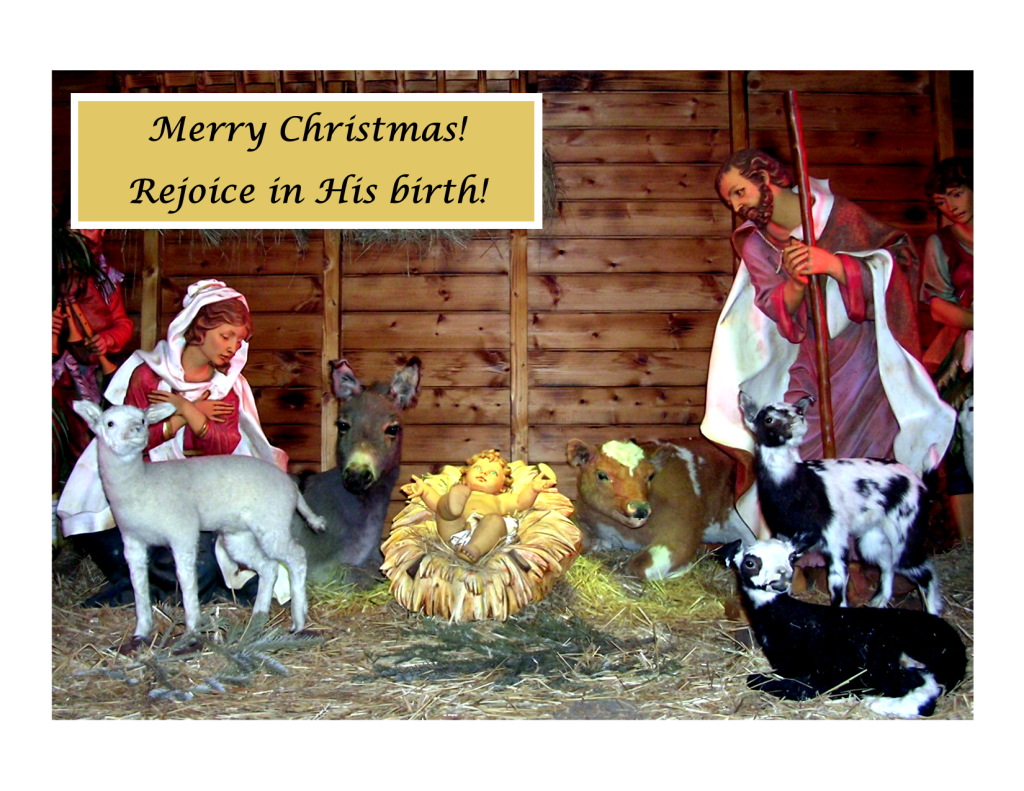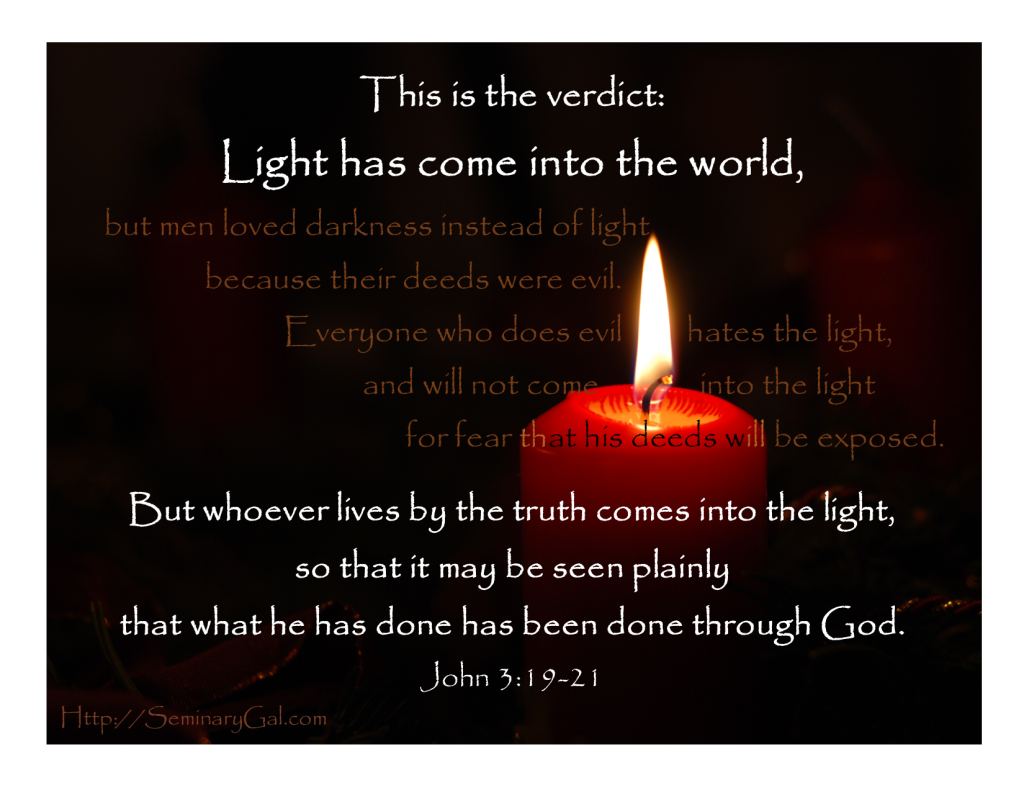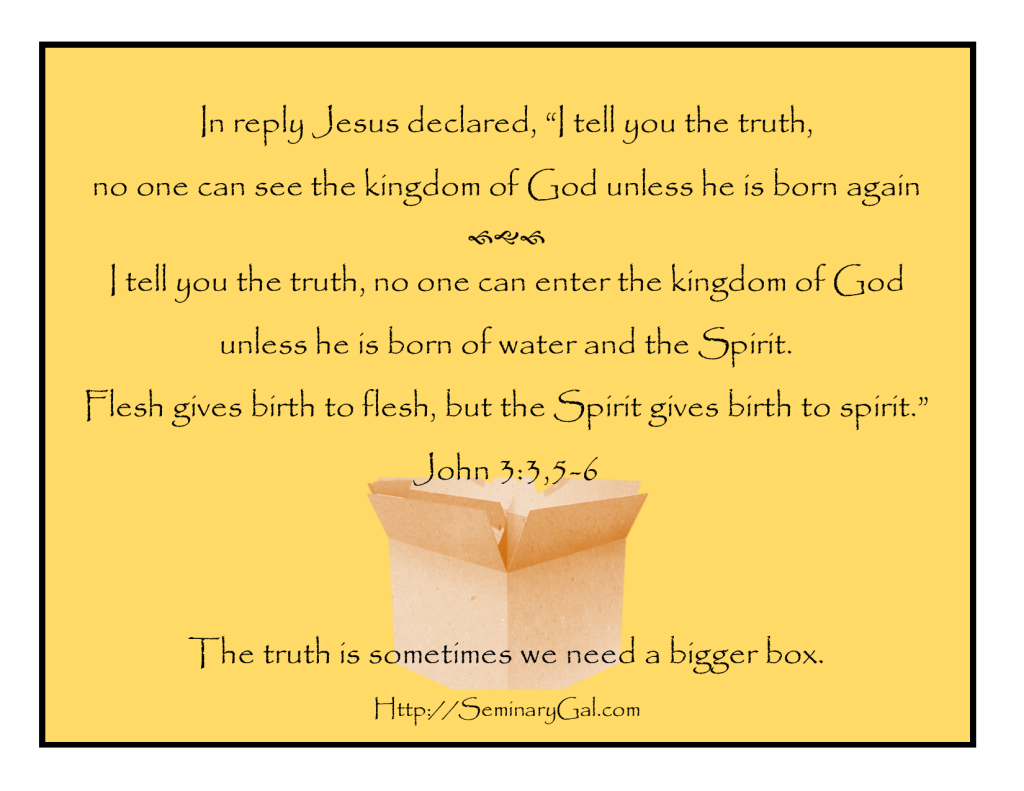I’ve been working on a presentation for Thursday on the Book of Ruth. It’s one of only two books of the Bible named after a woman, the other book bearing the name of Esther.
In preparation, I always read through the passages over and over to enter into the story so I can “become” Ruth, for example, in this presentation. The introduction in my study Bible says a few things so perfectly that I can’t resist quoting it today.
In speaking about Ruth and Boaz (who will become Ruth’s husband and together are in the ancestry of Jesus), the commentary states,
[The author of Ruth] presents striking examples of lives that embody in their daily affairs the self-giving love that fulfills God’s law (Lev 19:18; cf. Romans 13:10). Such love also reflects God’s love…[in] God’s benevolence such lives are blessed and are made a blessing.”
Ruth, a Moabitess, was an unusual choice to be displaying the loyal love of God to the Israelite family into which she married. And yet, there’s something beautifully affirming that participation in the family of God is not a function of birth or blood, family legacy or inheritance passed down the generations like something on Antiques Roadshow.
For us on the other side of the Cross, we see that inheritance of the Kingdom is not by birth but by rebirth and the only blood that matters is the shed blood of Jesus Christ whose loyal love deserves our obedience.
Ruth was the great-grandmother of King David and an ancestress of this same Savior, Jesus Christ. Yet, her inclusion in the family of God is a direct result of the life of faith she had, demonstrated in the “obedience that comes from faith” (Romans 1:5).
